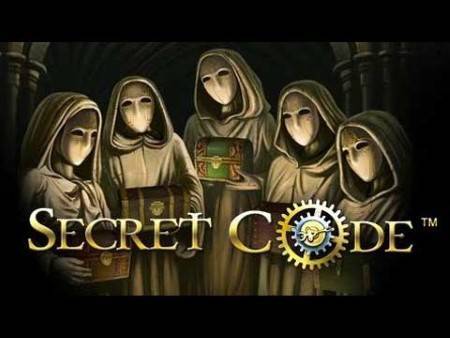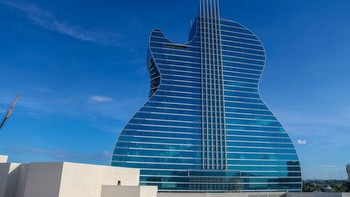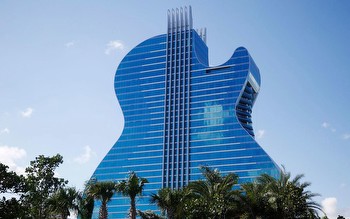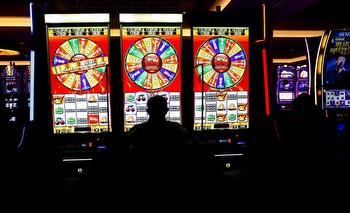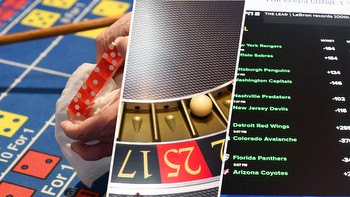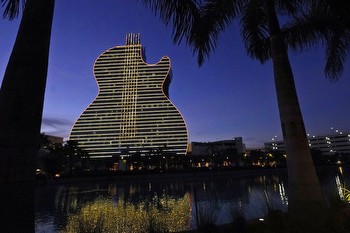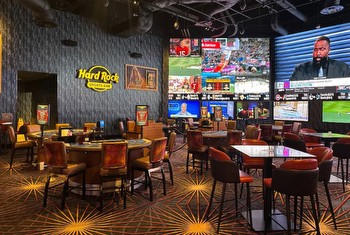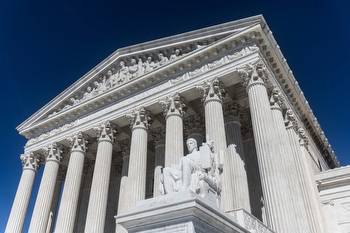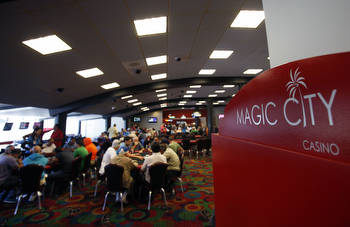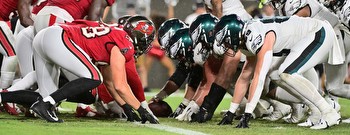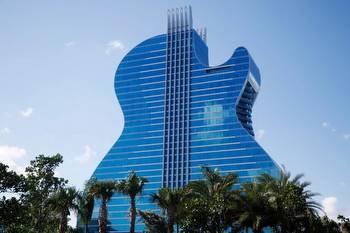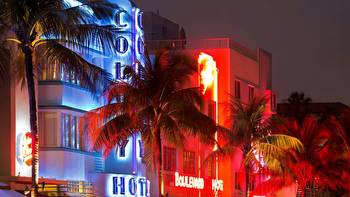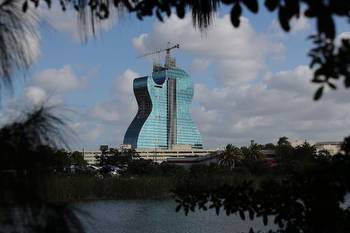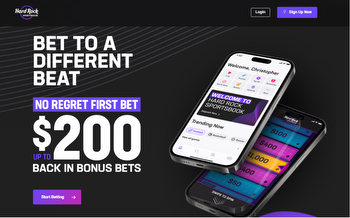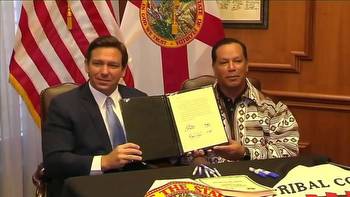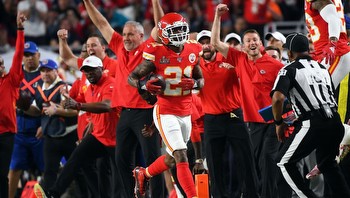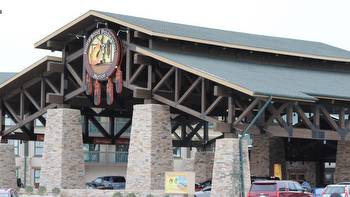Granting a monopoly on sports betting to the Seminole Tribe is a bad bet
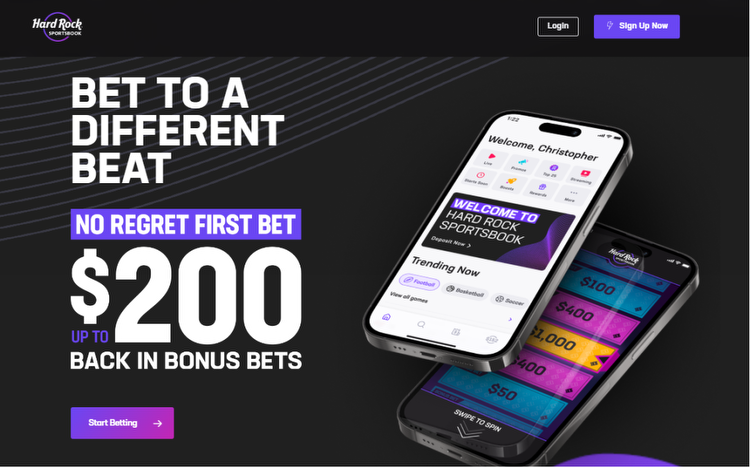
I should start by saying I think online sports betting should be legal in Florida.
Mainly because government shouldn’t decide whether you can blow your own money inside your own home.
Also because Florida already has state-sanctioned gambling galore — everything from a state-run lottery to casinos throughout the state. You can drop $1,000 at the Hard Rock or $100 on scratch-offs at any 7-11. But we’re supposed to believe it would tear at society’s moral fabric if you put $50 on the Chiefs to win the next Super Bowl while sitting in your La-Z-Boy.
Also because sports betting is already legal in most of America.
That said, the way Florida lawmakers are trying to greenlight sports betting in Florida is the worst way possible — by granting permission to only one entity, the Seminole Tribe of Florida and its Hard Rock brand.
No competition. No free market. And not just on tribal lands, but a monopoly on sports betting throughout every part of the state.
And it’s pretty clear that monopoly was granted — just a few years after voters added an amendment to the Florida Constitution to block further expansion of gambling — partly because the tribe plied Florida politicians with millions of dollars in campaign donations.
Just follow the money.
In February of 2021 — just before Gov. Ron DeSantis agreed to give the Seminoles a sports-betting monopoly and legislators approved the deal — the tribe gave the Republican Party of Florida $250,000. And that was just the early-stage chump change.
After the deal was struck and state politicians had to decide how hard they wanted to fight to defend this deal in court, the Seminoles’ money really began to rain down on the politicians who did what the tribe wanted.
The tribe gave another $200,000 to the state GOP. Then another $250,000. Then a cool $1 million.
DeSantis got even more, with his political committee receiving two separate checks for $1 million each in 2022.
The tribe also gave $250,000 to the GOP’s Senate campaign, $100,000 to then-Senate President Wilton Simpson’s committee and $10,000 to lowlier politicians like state Rep. Randy Fine.
Democrats also got in on the action, though at much lower stakes.
While Democrats are largely irrelevant in Tallahassee, most had also supported the Seminoles’ quest to get a monopoly on sports betting. So various Democratic committees received checks of $25,000 and $75,000 plus $100,000 going to the party itself.
Basically, if you were a politician who backed the tribe’s monopoly, there was a good chance you got to cash in.
As I wrote when the deal was first approved, there were plenty of things Florida lawmakers could’ve done with regards to sports betting that would’ve made logical and consistent sense.
They could’ve legalized sports betting in general and let various businesses compete in that space — as they do for virtually every other industry.
They could’ve allowed the Seminoles to operate sportsbooks inside its casinos, just like the tribe does with all its other gambling.
Or they could’ve stood firm and kept sports betting out of Florida altogether.
Any of those three options would have been logically defensible. But instead, they decided to greenlight sports betting statewide — but only for their donor pals in the tribe.
To justify the legality of this deal that would provide the state with $2.5 billion, the tribe argues that it’s using a “hub and spokes” model where the “hub” is the computer server on tribal land that processes bets that would otherwise be illegal in other parts of the state (“spokes”).
Their mind-bending argument is that, if you place a bet while sitting on the beach in New Smyrna, you’re not actually betting in New Smyrna. You’re betting on tribal lands. How meta.
The tribe and state politicians have used this “hub and spokes” phrase so often that it seems like they hope that, as long as they use a creative name for their scheme, people will believe it’s legit.
(So maybe the next time you’re caught doing something wrong, just use a creative phrase to justify it: Your honor, this wasn’t theft so much as it was the “spaghetti noodle and pasta spoon” method of redistributing possessions. You’re familiar with the “noodle and spoon” method, right? It’s widely accepted.)
Opponents call the tribe’s argument “legal fiction,” and a lower court agreed with them. But then on June 30, an appellate court in Washington, D.C., gave the deal a green light.
The appellate court’s ruling was pretty narrowly focused on federal issues, mainly whether the compact violated the federal Indian Gaming Regulatory Act. The court acknowledged there are still state-level issues still at play, including whether statewide sports betting violates the voter-approved anti-gambling amendment. So the legal wrangling may continue.
Still, court rulings aside, you’re left with a bunch of supposedly free-market-espousing politicians who decided to let just a single entity — one that has dumped buckets of cash into their campaign coffers — have a monopoly. And that’s a bad bet for everyone, except those cashing in.
Scott Maxwell is an Orlando Sentinel columnist. Contact him at [email protected].
